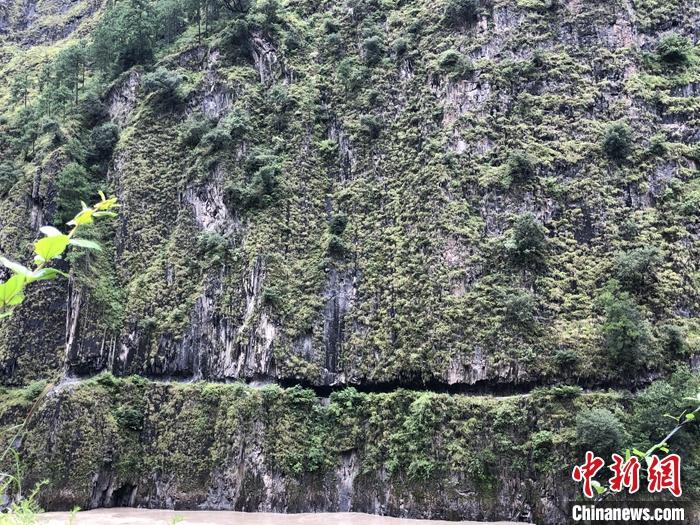Again, horse bells heard in the valley
Following a rain storm, rolling torrents were “roaring” in the grand Nu River valley. As faint jingles of horse bells got increasingly clearer, Li Dehua, a 36-year-old Nu man, showed up. He came from the nearby Wuli/misty village, together with his caravan.

“Make way, be quiet and don’t use your flash,” exclaimed Li, sending visitors vocal messages in advance.
“What are you doing?" a tourist asked.
“Carrying sandy stones for road building.”
On the horse road to Wuli Village, visitors brushed past Li’s horses, whose jingles faded away in distance.
Located in the Bingzhongluo town of Gongshan County, northwest Yunnan’s Nujiang Prefecture, Wuli Village used to be an impoverished area. Hidden into one of the world’s deepest valleys, the area features rugged terrain and wild rivers.
Before the founding of the PRC, local folks had long walks to meet each other, crossed the river via zip lines, and transported goods with man or horse. In the Wuli village, the only access to the outside was a horse trail carved out of cliffs. It is part of the Ancient Tea-Horse Road.

As Chinese authorities stepped up efforts to rid of poverty in recent years, an increasing number of talents, materials and investments gathered at the river valley, bringing hope to locals.
Under the help of local authorities, Wuli rolled out eco-tours and rural tours, tapping its tourist resources to the fullest. Thanks to the pastoral sights in dreamy mist, as well as its plain but natural lifestyle, visitors came into the village in droves.
Now, Wuli Village is the only national model for preservation of cultural relics in Gongshan County. To keep the historic trail intact, Wuli has build up new access to the village: another horse road with a suspension bridge.
Li Dehua saw a business opportunity in the new facility. “As tourism grows, more materials are needed. Since the road is not wide enough for vehicles, horses would be helpful.” In 2018, Li raised five transporting horses in the village, earning over 10,000 yuan within a year. Later, more folks joined Li in raising strong horses, and they formed a modern caravan. Next, Li will renovate his wooden house into a pastoral inn. He plans to pick up guests with the horses, offering them direct rides to the inn.

Times do change, and the ancient caravans faded out of sight. Amid local tourism development, however, jingle bells can be heard in the Nujiang valley once more. Missions of the caravan divers vary from time to time, but the valley folks’ pursuit for a better life remains unchanged, just like the ever-roaring Nu River, or the Salween.
Reporting by Li Xiaolin (China News Service); Trans-editing by Wang Shixue